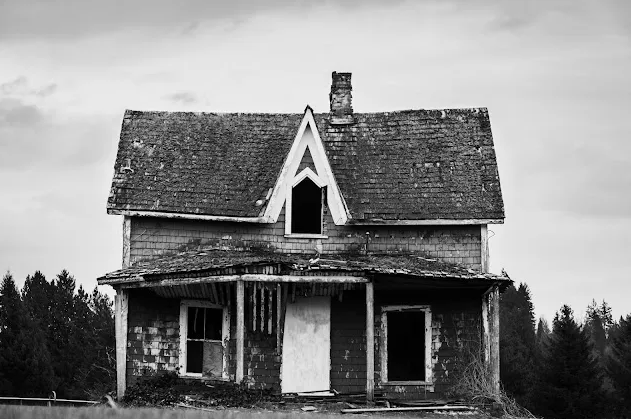Unveiling the Dark Side: Trails Carolina Horror Stories

Trails Carolina is a wilderness therapy program aimed at helping youngster and teenagers who are struggling with various emotional, behavioral, and psychological issues. The program uses the good benefits of nature, combined with counseling and education, to foster personal growth and healing.
The term “Trails Carolina Horror Stories” likely refers to accounts or experiences shared by individuals who did not have a positive experience with the program. These stories might include personal grievances, criticisms of the program’s methods, or dissatisfaction with the outcomes. It’s important to recognize that such stories represent individual experiences and perceptions, and they may not reflect the experiences of all participants.
Fictional Examples of Trails Carolina Horror Stories
- The Lost Expedition: In this fictional account, a group of teenagers on a wilderness expedition with Trails Carolina reportedly got lost due to a navigational error. The group spent an unplanned night in the woods, facing cold temperatures and fear, leading to a traumatic experience for some participants.
- The Unprepared Camper: Another imagined scenario involves a teenager who joined Trails Carolina but felt utterly unprepared for the physical demands of the program. This participant struggled with the hiking and outdoor survival skills, leading to a sense of failure and distress.
- The Misunderstood Youth: In this created story, a teenager with a history of anxiety joined Trails Carolina. However, the wilderness setting and group dynamics exacerbated their anxiety, leading to a situation where the teen felt misunderstood and unsupported by the staff, culminating in a negative overall experience.
- The Strict Regimen: This fictional tale describes a participant who found the rules and regimen of Trails Carolina overly strict and confining. The lack of personal freedom and rigid schedule led to a sense of frustration and rebellion, contrasting with the therapeutic intentions of the program.
- The Communication Breakdown: In this imagined example, a participant felt isolated due to a lack of effective communication with both peers and staff. This breakdown in communication led to feelings of loneliness and misunderstanding, overshadowing the potential benefits of the program.
Wilderness therapy, as a concept, is built on the idea that connecting with nature and engaging in outdoor activities can be beneficial for mental health and personal development. However, the effectiveness and suitability of such programs can vary greatly depending on the individual’s needs and the specific approaches of the program.
When considering these stories, it’s crucial to maintain a balanced view. While some participants may share negative experiences, others might have found the program to be transformative and beneficial. It’s also important to research thoroughly, considering both positive and negative reviews, and to consult with mental health professionals when evaluating such programs.
The Trails Carolina Investigation
The unsettling allegations of abuse and neglect at Trails Carolina have prompted independent investigators and regulatory agencies to examine the operations of this wilderness therapy program. They have emphasized the importance of transparency and accountability in this industry.
While some former participants have reported life-transforming experiences at Trails Carolina, others have described a range of problems including physical mistreatment. This article will explore the range of claims and provide recommendations for change.
Allegations of Abuse and Neglect
A series of harrowing stories reported by parents and former students have painted a disturbing picture of Trails Carolina. They allege physical abuse, emotional neglect, and subpar care. These allegations highlight the need for greater transparency and accountability in therapeutic wilderness programs.
The allegations reported by parents and students have sparked concerns about the safety of Trails Carolina and other wilderness therapy programs. These programs are intended to foster personal growth and self-reflection by immersing participants in natural surroundings, away from distractions and negative influences. However, some of these programs have been accused of causing emotional distress, physical injury, and even death.
Several of the Trails Carolina horror stories include accounts of physical abuse, including being held down or forced to stand for long periods of time. Other allegations have centered around emotional mistreatment, such as being made fun of or making participants feel bad about themselves. Still others have complained of neglect, including not getting enough food or water or being left unattended when sick.
The tragic story of Eric Galvan, a 16-year-old boy who died while on a Trails Carolina trip, highlights the need for more careful oversight of these types of wilderness therapy programs. His death could have been prevented if a program worker had called the sheriff’s department or the emergency number on his phone when he fell off a tree and broke his femur.
The Importance of Transparency and Accountability
After the tragic death of Alec Lansing, Trails Carolina faced a thorough investigation by DHHS. The investigation exposed numerous breaches of state regulations regarding participants’ safety and training in restraint techniques. However, it is important to note that DHHS did not revoke the program’s license to operate. Rather, the department imposed fines on Trails Carolina to address the concerns that were brought to light by the investigation.
While the allegations of abuse at Trails Carolina have dominated recent headlines, there are still families who have reported positive outcomes from the program’s services. These parents have praised the program for helping their children gain direction in their lives and improve family communication. They have also praised the Trails Carolina staff for their dedication and commitment to the success of their participants.
Whether or not the allegations of abuse at Trails Carolina are true, it is vital that these claims receive the appropriate scrutiny. This is why it is essential that regulatory bodies and investigative journalists delve into the trail of evidence surrounding these claims. Their goal should be to determine if the program violated any laws or industry standards. This would provide a comprehensive picture of the overall operations of the program and ensure that the safety and well-being of participants is not compromised in any way. In addition, these investigations can lead to more transparency and accountability within the wilderness therapy industry as a whole.
Recommendations for Change
The Trails Carolina Investigation serves as a stark reminder of the importance of transparency and accountability for programs that cater to vulnerable youth. This case also highlights the necessity of rigorous oversight to ensure that safety protocols are upheld in therapeutic settings.
Allegations of abuse and neglect at Trails Carolina have raised serious concerns about the program’s operational practices, ethical standards, and overall impact on participants’ well-being. Despite the program’s insistence that the allegations are taken out of context and based on mismisunderstandings, it has publicly declared its full cooperation with ongoing investigations, undertaken an internal review, and committed to making necessary changes to prioritize participant safety.
Unfortunately, these efforts are likely too late for the numerous teens whose lives have been irrevocably harmed in the name of Trails Carolina’s therapeutic goals. Their tragic deaths are a haunting reminder of the delicate balance that must be struck between innovative therapeutic techniques and ensuring the safety and wellbeing of participants.
Final Summary
Trails Carolina is an acclaimed wilderness therapy program that has helped many troubled teens. Its focus is on building resilience and encouraging change, with positive testimonials from participants and professional endorsements from medical experts. However, the recent allegations of abuse and neglect have prompted a closer examination of the program and its operations.
FAQs on Trails Carolina Horror Stories
Q: Are these horror stories true?
A: The stories referred to as “horror stories” are subjective and based on personal experiences. They may not represent the experiences of all participants and should be approached with an understanding that experiences can vary greatly.
Q: What kinds of issues do these stories usually involve?
A: These fictional stories might involve experiences like feeling unprepared for the program’s challenges, feeling misunderstood or unsupported by staff, strict program rules, or issues with group dynamics.
Q: How should one interpret these stories?
A: When hearing or reading these stories, it’s important to maintain a balanced perspective. Consider that they represent individual experiences and may not reflect the broader effectiveness or approach of the program. It’s also advisable to research thoroughly and consult with professionals.
Q: Can these stories be used to assess the quality of Trails Carolina?
A: While these stories can provide insights into some participants’ experiences, they should not be the sole basis for assessing the quality of Trails Carolina. It’s important to look at a range of experiences, reviews, and, if possible, seek professional opinions.
Q: What should I do if I have concerns about Trails Carolina?
A: If you have concerns, it’s advisable to conduct thorough research, read various testimonials, and speak directly with the program’s representatives. Consulting with mental health professionals who are familiar with wilderness therapy can also provide valuable guidance.
Read More: RubMD Dallas




